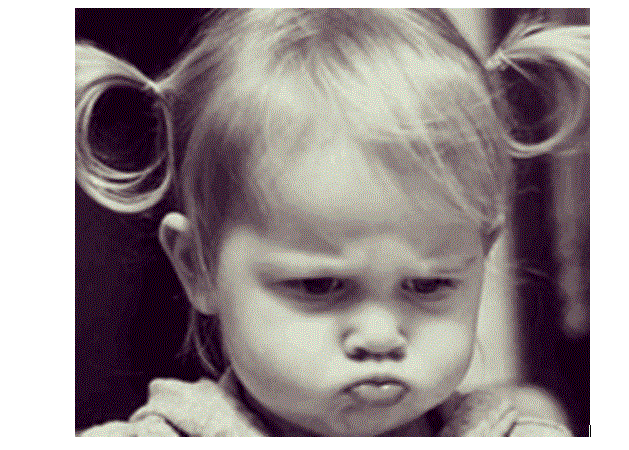Changing social attitudes in society seem to cause marriage stability to decline while recent statistical data indicates divorce rates are falling.
The modern era seems to counter established philosophical marriage concepts which Aristotle and Kant introduced about marriage functioning as societal benefit and moral obligations.
Marriage should adopt new definitions that embrace individual autonomy and equality according to the standpoint of authors including Mill, Nietzsche and de Beauvoir.
Economic and social organizational systems which Marx and Foucault have studied prove important in explaining current marriages practices.
Background
Society historically regarded marriage as its vital support structure that ensured both societal stability and continuous operation. Recent social patterns show a decreasing stability of marriages because people have changed their perspectives on relationships and divorces have increased throughout history. The union faces fundamental shifts even though the divorce statistics dropped to 2.5 per 1,000 US residents during 2022 (Forbes Advisor, 2025).
Philosophical Analysis
Throughout history philosophers have continually evaluated marriage as a social institution through their perspectives starting from Aristotle’s natural view and Kant’s moral construct and moving to Mill’s demand for equality and de Beauvoir’s feminist analysis. Knowledge gained through different viewpoints enables understanding of both historic and contemporary threats to marital stability.
Contemporary Challenges
The traditional marriage face challenges because modern society developed through economic changes and individualization. Marriage stability decreases due to the increasing number of contract-based relationships along with changing moral values in society.
Philosophical Analysis of Declining Marriage Stability
The analysis investigates the unstable state of marriage across time by evaluating philosophical perspectives of Aristotle, Kant, Mill, Nietzsche, de Beauvoir, Marx and Foucault. The investigation structure begins with historical perspectives before moving through modern critiques and contemporary social changes to provide a conclusion about marital prospects in the future.
Introduction and Context
As a basic social component since antiquity marriage serves as a foundation which maintains consistency. Recent statistical findings show that people view marriage stability as declining because of evolving viewpoints and past increases in matrimonial separations. Marriage attitudes in the US today show a shift as more people choose alternatives to marriage or postpone their wedding plans although the divorce rate declined from 4.0 per 1,000 in 2000 to 2.5 per 1,000 in 2021 (Forbes Advisor, 2025; Roser & Ortiz-Ospina, 2018). The author suggests marriage will maintain its essential value yet needs modernization to adapt with changing cultural norms and personal liberties.
The researchers analyse ancient philosophy first and modern skepticism afterward to conclude the exploration with current factors that impact marriage longevity. The core inquiry focuses on whether wedding has suffered substantial meaning degradation or modern social development has modified its core characteristics. Marriage endures challenges yet maintains its significant worth by requiring transformation to match present sociocultural ideas.
Historical and Philosophical Perspectives
Through different philosophical interpretations people have viewed marriage as it affects its overall stability. Aristotle writes in ‘Politica’ about marriage being a natural institution for conceptive purposes which establishes the origin of states. According to societal perspectives the family including husband, wife and children stands as the foundation of societal structure. According to this view the natural leader position of the husband enables the wife to perform her designated role within the household which in turn creates stability both for the home and entire state (Miller, 2017). Western thinkers influenced by this view used it to develop their understanding of marriage through a societal perspective.
In The Metaphysics of Morals, Immanuel Kant establishes marriage as an agreement that gives spouses full possession rights to each other including sexual intimacy. The shared state of ownership creates sexual relations within marriage moral because it upholds the basic obligations and commitments for marital partners (Schroeder, 2013). Kant recognizes the value of mutual obligations and duty as essential aspects because they establish marriage as a stable institution.
Christian theologian-Augustine together with theologian Aquinas work to establish marriage as a permanent state. The Christian theologian Augustine considers marriage to be sacred through procreation and fidelity while sacred sacrament makes it indissoluble except when adultery occurs. Aquinas understands marriage as a sacramental union of Christ with the Church which simultaneously serves as a natural institution for procreation resulting in divine significance and enduring permanence (Bergoffen, 2017).
Contemporary society holds marriage as a traditional core foundation based on three principles: stability and dual-directional obligations and sacred unity. The theoretical ideas influenced actual legal and social marriage practices through historical marriage trends for centuries. The emphasis on procreation with lasting mutual commitment strengthened beliefs about marriages being both everlasting and uncontroversial.
Modern Critiques
The current philosophical movement exists to challenge traditional marriage thoughts because it targets both marriage patterns and fundamental marital beliefs. The traditional marriage institution serves as a means to subdue women according to John Stuart Mill through his work “The Subjection of Women.” According to Mill marriage operated as an official type of slavery through which women received no freedom and had their fundamental rights excluded. According to Mill the restructuring of marriage demanded a fundamental change to make it an equal relationship that grants equal power to both husband and wife. In his view this type of relationship equality would create stronger marriages because it established justice and peace between spouses (Thomas, 2016).
Marriage generated mixed emotions from Friedrich Nietzsche since he neither endorsed nor opposed it. Marriage remained an undeveloped institution for Mill even though he approached spouse selection seriously and maintained doubts about the entire system. As Zarathustra taught in “Thus Spoke Zarathustra” marriage implies progression towards advanced human connections. For Nietzsche marriage posed two conflicting sides because he identified it as both a necessary choice but thought it limited creative freedom and led to indifferent behavior (McKay & McKay, 2013).
In “The Second Sex” Simone de Beauvoir describes marriage as a male-dominated system which uses the definition “Other” to force women into perpetual existence while making them subservient to men. In the view of de Beauvoir marrying destroys a woman’s capacity for transcendence because it converts her into mere male property. Bergoffen (2017) explained that real female liberation emerges from women throwing away marriage-imposed expectations to build independent existence without male dependency.
Significant contemporary analysis questions traditional marriage principles because they doubt basic beliefs about sexuality roles together with personal independence and fairness. The authors argue that the constant nature of marriage exists through restrictions placed on women’s freedoms which leads to a less satisfactory marriage system.
Contemporary Issues and Social Shifts
Social theorists together with contemporary philosophers have taken further steps to understand marriage in present-day societies while considering economic and social developments. For Karl Marx marriage existed as a social institution which he studied through Historical Materialism because it formed according to specific economic and social factors. According to his interpretation, marriage served primarily as a property sharing tool and status preserver during feudal times and starting phases of capitalism. Marriage became an institution for controlling the inheritance of money as well as class status through the ownership of women. Marx and Engels maintained in “The Origin of the Family, Private Property, and the State” that the monogamous family developed when private property arose and inheritance became necessary according to theories set forth by Engels in 1884.
The conventional norms and objectives of marriage face opposition because society developed through changes in economic frameworks and the emergence of individualistic values. Social transformations imposed by capitalism have produced higher divorce statistics together with deteriorating marriage stability because people obtain financial independence and recognize shifting gender roles so they can abandon unhappy marriages more readily.
The research by Michel Foucault demonstrates how marriage operates as a disciplinary tool through history to control human sexual activities. Foucault established that contemporary sexual understandings and their connected marriage conventions emerged through systems of power alongside intellectual discursive conventions. The book “The History of Sexuality” explores by Foucault how religious confession and subsequent medical and scientific discussions developed modern sexual and marital interpretive frameworks. According to Foucault (1978) marriage stood as the only approved way to express sexuality but regulators considered non-marital sexual activities either medical problems or criminal offenses.
The modern secular-liberal societal transformation has weakened traditional sexual norms thereby enabling growing approval toward relationships beyond heterosexuality and marriage. The increasing cultural acceptance of non-traditional ways of living has resulted in decreasing marital stability between heterosexual partners.
The stability of marriage keeps transforming because of current developments that include the increase in contractual relationships as well as technological effects on relationships and altering moral values. Most people now turn to prenuptial agreements and practice cohabitation outside marriage as ways to establish personalized relationship arrangements.
This table presents modern influential factors which affect marital stability.
| Factor | Description | Impact on Stability |
| Economic Independence | Increased financial autonomy for individuals, especially women | Higher divorce rates, less dependency |
| Changing Gender Roles | Shift towards equality, challenging traditional roles | Potential for more equitable but less stable marriages |
| Contract-Based Relationships | Rise of prenups and cohabitation, emphasizing flexibility | Less permanence, more individualized arrangements |
| Secularization | Decline in religious influence, weakening sacred bonds | Greater acceptance of diverse relationship forms |
| Technological Influence | Impact on intimacy through dating apps and online communication | May weaken traditional commitment, increase options |
The changing social dynamics create a test for marriage integrity which leads to institutional transformations.
Conclusion and Reflection
Marriage stability experiences problems because society and philosophical ideas work to oppose established marriage beliefs. Philosophers from Aristotle to Kant and thinkers including Mill and de Beauvoir together performed lasting evaluations of marriage throughout history. Marriage needs to transform itself to align with current standards regarding individual rights together with gender equality and different household arrangements. For modern marriage to evolve many jurisdictions must pass laws to guarantee identical rights between partners irrespective of their sexual orientation or gender alongside changing cultures to adopt more balanced marital arrangements.
The core task of defining marriage exists as a secure nurturing base for childrearing and emotional connection between adults although we must proceed with care. The major task lies in creating harmony between personal freedom and maintaining long-term commitments. The ability of marriage to develop alongside social importance constitutes an on-going debate. Approaches to philosophy combined with historical understanding help build a stronger institution of marriage between adults and children.
Key Citations
Aristotle’s political theory Internet Encyclopedia of Philosophy
Kant on the law of marriage Kantian Review Cambridge Core
John Stuart Mill & Harriet Taylor Mill on equality in marriage & family Philosophy Now
Nietzsche’s (Surprisingly sound) advice on choosing a spouse The Art of Manliness




